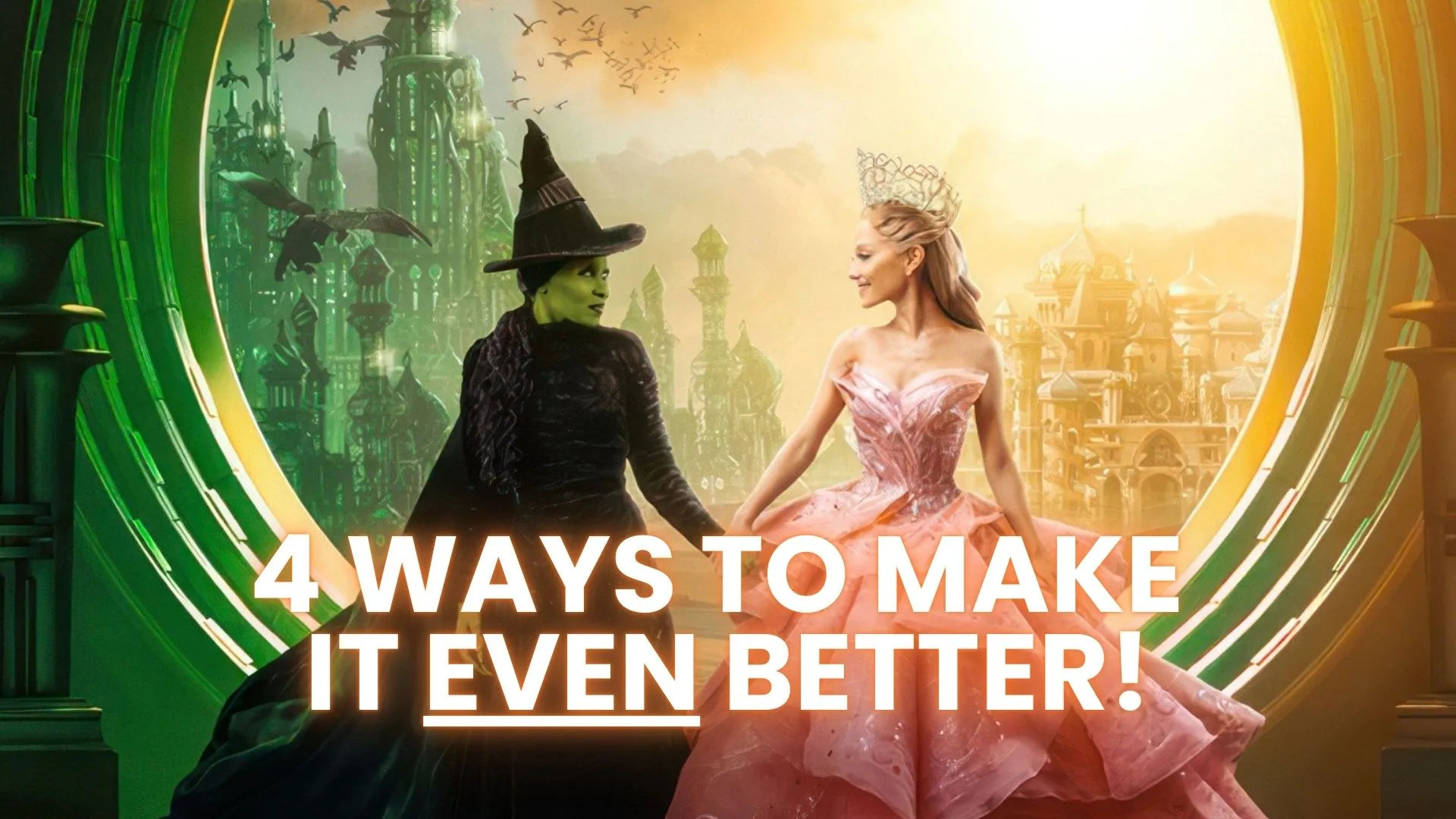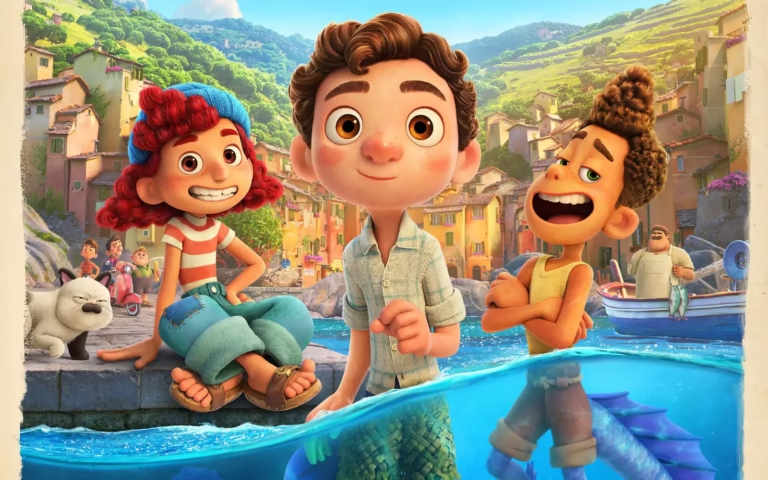
It’s no surprise that Wicked has taken the spotlight as one of the most successful musical films of the year. With its mesmerizing music, standout performances, captivating story, and dazzling visuals, the movie rightfully earns the adoration of its fans. However, even with all its magic, there are a few areas where Wicked could have soared even higher. Here are four ways the film could’ve been improved.
But First, Let’s Understand the Story
Wicked offers a fascinating reimagining of the classic Wizard of Oz tale, flipping the narrative in unexpected ways. At its heart is Elphaba Thropp, who is revealed to be the misunderstood hero rather than the villain she’s been painted as a victim of false accusations by the manipulative Wizard of Oz and Madame Morrible.
The plot dives deep into the darker undertones of Oz, unveiling a sinister conspiracy. The Wizard, alongside the Emerald City elites, seeks to strip animals of their rights and even their ability to speak. This adds layers of intrigue and moral complexity to the story, making it more than just a prequel—it’s a compelling exploration of injustice and redemption.
#1 A Way to Develop Elphaba Better
Elphaba’s transformation into the “Wicked Witch of the West” is rooted in her love and advocacy for animals, but this origin feels somewhat underdeveloped. The film hints at her eventual descent into a more antagonistic role, reminiscent of Magneto from X-Men or Megatron from Transformers One. If this is the direction the writers intended, they should have devoted more effort to fleshing out her path and making her shift toward darkness feel inevitable and justified.
One way to achieve this would be by delving deeper into Elphaba’s relationships with key animal characters. For instance, we learn that her green skin caused her father to reject her, leaving her to be cared for by Dulcibear, her loving bear nanny. This bond is crucial to understanding Elphaba’s compassion for animals, but the movie barely scratches the surface of their connection. More screen time showing their relationship could have added emotional weight to Elphaba’s motivations.
Similarly, her friendship with Dr. Dillamond, the goat professor fighting for animal rights, should have been explored further. Strengthening their bond and showing the impact of his struggles—or even his potential downfall—on Elphaba would have added more depth and heartbreak to her arc. These relationships are the heart of Elphaba’s character, and giving them more focus would have made her journey all the more compelling.
#2 A Way to Develop Glinda Better
Casting Ariana Grande as Glinda was a genius move. Her portrayal captures the character’s innocent charm, making it almost impossible to hate her—even when it’s clear she’s tempted to betray her best friend, Elphaba. The writers should lean into this and take full advantage of Glinda’s nuanced persona.
While the film hints at Glinda’s desire for Madame Morrible’s approval, suggesting that she’s willing to betray Elphaba to gain the validation she craves, this motivation isn’t fully explored. The writers need to provide a more solid, compelling reason for Glinda’s desperation to be trained as a sorcerer.
Exploring Glinda’s backstory could offer the necessary depth. Although she comes from a wealthy family, perhaps she’s always been overshadowed by others with greater magical abilities, leading her to feel inferior. This longing to prove herself, not just to others but to herself, could give her betrayal more emotional weight and make her decisions feel more relatable. By expanding on Glinda’s internal conflict, the writers could create a much more complex character who isn’t just a foil to Elphaba, but a person with her own deep-rooted fears and ambitions.
#3 A Way to Develop Oz Better
Jeff Goldblum’s portrayal of Oz is an inspired casting choice, but unfortunately, the character feels severely underused. Given the stature of the actor and the central role Oz plays in the story, he deserves a much larger presence on screen. We never truly get to understand his motivations, and his evil plan lacks the complexity it could have had.
To make Oz a more compelling antagonist, the writers should have given us a deeper look into why he’s so determined to vilify animals and strip them of their rights. Why does he want to erase their ability to speak, and what’s behind his ruthless agenda? A powerful villain speech—one that lays out his twisted reasoning—could have added a much-needed layer of menace and intrigue to his character.
One possible motivation the writers could explore is the idea of an impending famine. Perhaps Oz believes that the only way for humanity to survive is by consuming animals, and making those animals lose their sentience would make them more palatable for consumption. This could have been a disturbing yet understandable rationale for his actions, giving Oz’s villainy a more practical, albeit morally questionable, foundation. With this addition, Oz’s character would become much more menacing and his actions far more sinister.
#4 Add a Freaking Plot Twist Here!
One of the most intriguing reveals in Wicked is that Elphaba was born out of scandal, with her mother being tricked into drinking an excessive amount of green elixir, which not only caused Elphaba’s green skin but possibly also unlocked her innate magical abilities. But what if the film took this concept even further and added a shocking twist that would truly shake the foundation of the story?
What if Oz isn’t just a manipulative villain but also Elphaba’s father? The film hints that Oz is not the powerful wizard everyone believes him to be—he can’t even read from the powerful spellbook, Grimmerie. But what if that’s because he’s not really a wizard at all? What if he orchestrated the scandal, luring Elphaba’s mother into drinking the green elixir in the hopes of creating a child with natural sorcery abilities, so that this child could help him unlock Grimmerie’s powers?
This plot twist would tie together the elements of Elphaba’s origin and Oz’s true intentions, making him not only the architect of Elphaba’s suffering but also the driving force behind her magical potential. It would add a level of complexity and tragedy to their relationship, turning Elphaba’s battle with Oz into a deeply personal conflict. This revelation would elevate the stakes and provide a powerful, emotional payoff to the story.
Conclusion
Ultimately, Wicked has the potential to be a truly standout film. With a runtime of nearly three hours, there’s more than enough time to develop characters like Elphaba, Glinda, and Oz, and even throw in an epic plot twist for good measure. However, the film tends to prioritize its songs—understandably, given that it’s a musical—over fleshing out the characters’ backstories. While the music is fantastic, the focus on a love triangle with Fiyero detracts from the emotional depth the story could have had. This subplot adds little to the film’s climax and ultimately feels like a wasted opportunity.
That said, Wicked is still a solid film with great performances, stunning visuals, and captivating songs. It’s just that with stronger writing, the characters could have been given richer, more developed arcs.
We’re giving Wicked a 7/10. It’s a good movie, but with more focus on character depth, it could have been great. We’re looking forward to the sequel next year!





